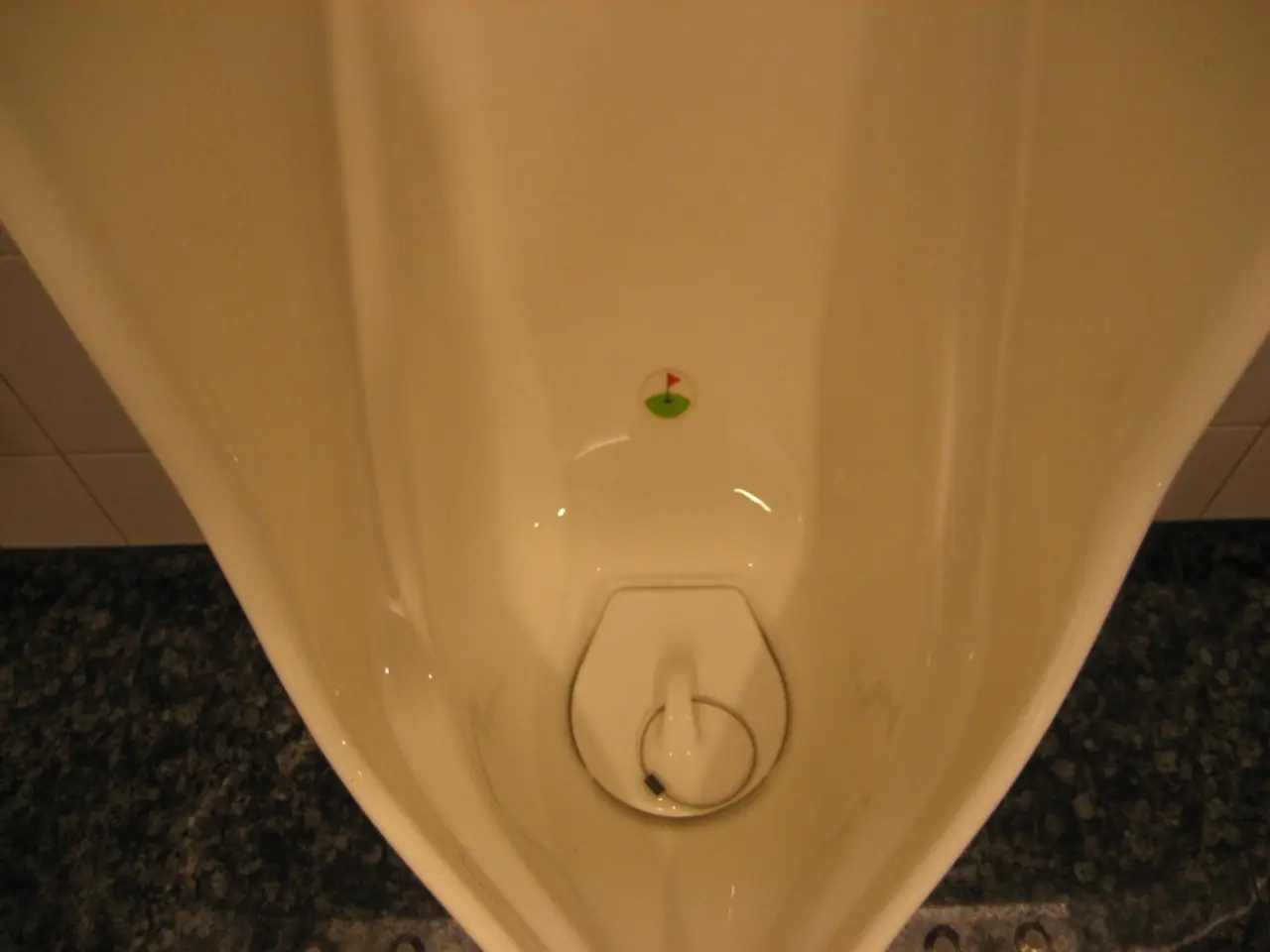Strategies for Reducing Nightly Urination Frequency
Frequent nighttime urination, or nocturia, can disrupt sleep and impact the quality of life. This common issue is often caused by excess urine production at night, decreased bladder capacity, or sleep disruptions, and may be linked to underlying health conditions.
Key causes of nocturia include nocturnal polyuria, overactive bladder, sleep apnea, medical conditions, and lifestyle factors. Nocturnal polyuria is the production of excess urine at night due to fluid intake at night, leg swelling that redistributes fluid when lying down, or circadian rhythm changes with aging. Overactive bladder is characterised by involuntary bladder contractions causing frequent urges. Sleep apnea causes hormone changes that increase nighttime urine production and frequent awakenings, which increase awareness of bladder sensations.
Medical conditions such as diabetes (high blood sugar causes excess urine), urinary tract infections, an enlarged prostate (in men), heart failure, and certain medications like diuretics can also contribute to nocturia. Lifestyle factors, such as drinking fluids (especially caffeine or alcohol) within 2-3 hours of bedtime, can also cause more nighttime urination.
To manage nocturia, it's recommended to limit evening fluid intake, avoid caffeine and alcohol before bed, elevate legs during the day to reduce peripheral edema and nighttime fluid shift, treat underlying conditions such as diabetes, UTIs, or sleep apnea, and use medications as prescribed for overactive bladder or prostate enlargement.
If frequent nighttime urination interferes with sleep or quality of life, it's important to seek medical evaluation to identify and manage the specific cause. For instance, taking a diuretic in the afternoon may help reduce nighttime urination. However, it's worth noting that taking a diuretic or "water pill" will cause increased urination frequency.
In conclusion, while frequent nighttime urination can be a symptom of more serious conditions, small changes such as limiting evening fluid intake, avoiding caffeine and alcohol before bed, and elevating legs during the day can help address the issue and improve sleep. Always consult a healthcare provider for proper diagnosis and tailored treatment.
[1] Mayo Clinic. (2020). Frequent nighttime urination. [online] Available at: https://www.mayoclinic.org/diseases-conditions/frequent-nighttime-urination/symptoms-causes/syc-20376100
[2] NIDDK. (2021). Nocturia. [online] Available at: https://www.niddk.nih.gov/health-information/urologic-diseases/nocturia
[3] Cleveland Clinic. (2021). Nocturia: Nighttime Urination. [online] Available at: https://my.clevelandclinic.org/health/diseases/17234-nocturia
[4] Urology Care Foundation. (2021). Overactive Bladder. [online] Available at: https://www.urologyhealth.org/urologic-conditions/overactive-bladder
[5] American Academy of Family Physicians. (2020). Nocturia. [online] Available at: https://familydoctor.org/condition/nocturia/
- Managing nocturia involves limiting evening fluid intake and avoiding caffeine or alcohol before sleep, as these factors can contribute to excess urine production.
- Lifestyle modifications, such as elevating legs during the day and seeking treatment for underlying conditions like diabetes or sleep apnea, can help reduce nighttime urination and improve mental health and quality of life.
- Proper diagnosis and tailored treatment plans for nocturia and its related health conditions can be achieved through consulting health professionals, as the issue may indicate more serious conditions requiring medical attention.




